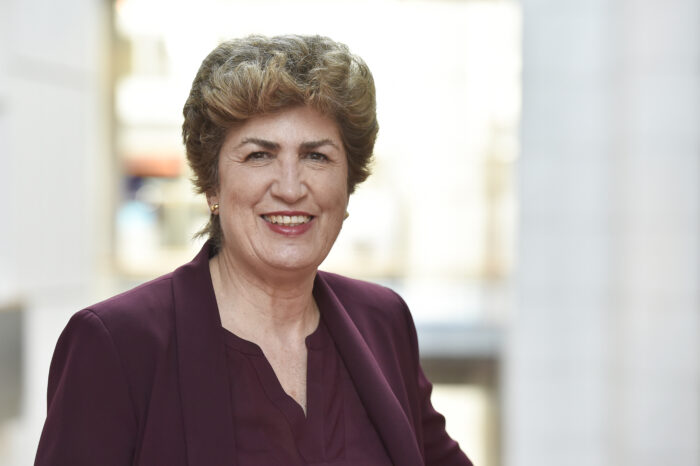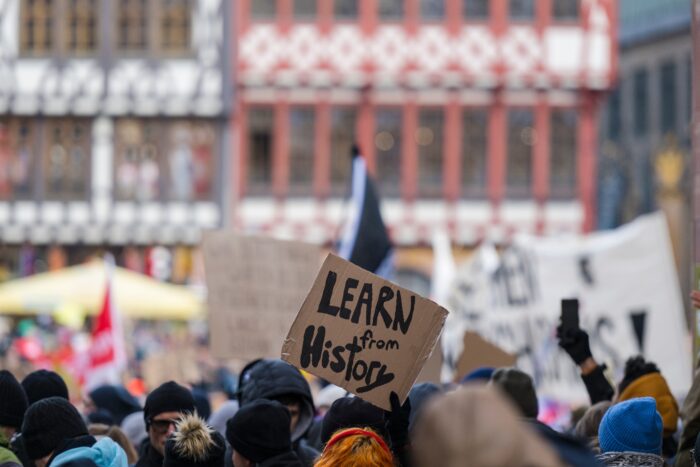The Progressive Post
Europe under test in 2022

We are entering 2022 with the feeling that we have narrowly escaped a shipwreck and are now clinging to a piece of wood – knowing that new waves of the virus may come with their retinue of implications, and looking for references to know in which direction to swim. To set the direction to take, we seek to identify challenges and concerns to prioritise, but also exit possibilities where we need to focus efforts.
This is a central responsibility of the progressive forces in Europe that, after important electoral victories from Germany to Italy, through the Nordic and Iberian countries, now also have a key opportunity to strengthen their leadership in driving the European project.
The first challenge is still to master the pandemic. There is now a very significant difference compared to last year because the development and diffusion of the vaccine has made it possible to noticeably reduce the deadly risks. But we still don’t know how to prevent and control the new variants that may come. There has been important progress, but we are still far from having a European Union of Health that is able to prevent and fight pandemics with fast and smarter health care and universal access to it. And, more than that, we are still playing ostrich about the need to extend that access to the entire planet to really beat the pandemic. That is what is going to be at stake in 2022.
The second challenge is, still, saving jobs and viable companies by protecting them from the successive pandemic waves. With reinforced protection schemes backed by European solidarity and increasingly sophisticated management of the dilemma between human activities and public health protection. It is true that the pandemic potentially affects everyone, but it is now also clear that this probability is much higher in certain professions and sectors of activity, which further accentuates old and new social, regional and inter-country inequalities. This is what will be at stake in 2022 with the Resilience and Recovery Plans, which also have to be plans for convergence and in-depth transformation.
But as climate change is already translating into multiple catastrophes, the ecological transition has to be accelerated in all critical sectors from transportation to industry and energy, with a sensitivity to the social impacts. There are tough decisions to be made to ensure consistency at the European level. The most recent controversy over whether or not to accept nuclear and gas in the energy matrix to decarbonise is there to illustrate this. And here too – as it was already evident at the last COP – this fight will not succeed until the developed countries increase their financial solidarity with the developing countries. It is this level of political will to move faster that will be at stake in 2022.
At the same time, digital transformation has been accelerated in all domains and must be shaped in the right direction before it is too late: regulating the operations of the big digital platforms, but also offering alternatives for the production of new services and goods that are in line with European preferences regarding the protection of privacy, quality of life, and working conditions, whether on platforms or telework. This is what is at stake in 2022 with the new package of measures under discussion under the label of the European Digital Compass.
Finally, the whole global framework of the European project is in deep mutation: systemic competition between the United States and China and the return to the logic of areas of influence, as illustrated by Russia’s often threatening actions. Moments of clarification will mark the 2022 calendar: the World Trade Organization conference, a new COP on Climate, the G20 summit on economic revival, and the NATO summit where key issues will be on the table: should China be considered, alongside Russia, as an issue of concern? How to deal with Europe’s eastern border with Eastern Balkans, Belarus and Ukraine as epicentres? And how to articulate NATO with the strengthening of European defence capabilities in a period when security threats have diversified from energy to digital?
Above all, what will be on trial in 2022 is European internal cohesion: in developing a more articulate, coordinated and influential external action; in an enlargement strategy to incorporate the Western Balkans and stabilise the European borders; in a genuine European immigration and asylum policy that no longer puts us to shame; in strengthening a long-term investment capacity that relies on a European budget financed by European debt, based on own resources and on updated national budgetary rules; and in effectively ensuring that the rule of law, with independent and effective judicial systems, an independent and plural press are respected as a sine qua non of EU membership.
With all this, it seems clear that the European project must move into a new phase, based on democratic transformation. Its main engine should be European citizens who are demanding more action on a European scale, because only this can enable visible results regarding certain public goods that have become vital: protection against pandemics, protection against technological unemployment, job-creating investment, shifting the tax burden to new sources, convergence towards basic social, digital, and environmental rights, as well as protection against new threats to security and democracy.
This will be the test for 2022, and also for the ongoing Future of Europe Conference, without which many expectations will be dashed, starting with those of the youngest generations.
Photo credits: Pixelvario/Shutterstock




